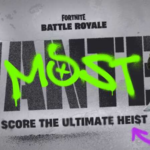Published on: 01/07/2022
Gaming companies reconsider crypto efforts as NFT market slumps

It is hardly a secret that the idea of integrating NFTs and cryptocurrencies into video games barely receives any support from gamers. There is a myriad of reasons behind this, including vulnerability and scams, among others. Some also see the integration merely as a convoluted cash grab attempt by the game industry.
Still, however, the lucrative market was hard to miss for gaming companies such as Ubisoft, Sega, and Square Enix — especially after a relatively short boom in 2021 — as they began rolling in their crypto plans with high hopes to garner millions in the market, similar to what was achieved by Axie Infinity.
Story of Axie Infinity
Axie Infinity’s “play to earn” model seems to have piqued the interest of some gaming companies — leading them to conclude that both NFTs and crypto are lucrative markets that must be explored.
Here’s how Axie Infinity’s “play to earn” model works: there are two tokens that players can earn in Axie Infinity, namely Axie Infinity Shards (AXS) and Smooth Love Potion (SLP). Both tokens can be traded for revenue in cryptocurrency exchanges, having the USD Tether (USDT) market as the largest preferred stablecoin by the game’s players last year, with a whopping 81 percent of trade compared to other stablecoins, as per FXStreet’s Ekta Mourya. According to the same report, in late 2021, AXS offered traders 2,000 percent returns.
As for whether the game is profitable to play or not, the answer depends on which country the player lives. In developing countries like Vietnam and the Philippines, the game is considered a revenue generator due to weaker fiat currencies in both countries. In developed countries like the U.S. — not so much. But it is clear that this does not stop Ubisoft, Sega, and Square Enix’s ambition to earn a similar fortune as Axie Infinity. Despite huge initial optimism, however, recent NFT and crypto market performance might have forced these plans to a grinding halt.
Ubisoft Quartz meets lukewarm reception
According to DappRadar’s data tracker, NFT is on its way to recording its first under $1 billion sales since June last year. While OpenSea, one of the biggest and perhaps the leading NFT marketplace, noted a downward spiral trend of sales volume, hitting a 75 percent drop since May 2022.
Some major NFT collections have also sunk in value this year. Otherdeed NFTs, launched in May this year and were the most demanded release, saw their floor price plummet by 30 percent in the past month. In addition, Axie Infinity, the darling example of the P2E model, saw $615 million of assets stolen from its network in a cyberattack earlier this March.
Ubisoft, meanwhile, went ahead to launch its first NFT platform Ubisoft Quartz, where players can acquire Digits — Ubisoft’s NFTs — in December last year. It was apparent that the company had high hopes that the platform could bring additional economic value to video games. Alas, this was met with lukewarm — if not outright hostile — reaction by most gamers.
Gamers were also quick to point out that in Ubisoft Quartz’s terms of use of blockchain, Ubisoft has no ability to “reverse or cancel transactions” in addition to having “no liability” for claims and damages. Aside from that, Ubisoft itself also acknowledged that the use of Tezos “may be subject to specific weaknesses, which make them possibly targets for specific cybersecurity threats”.
The flurry of bad news might have been too much for Square Enix and Sega. Having previously announced their interest in expanding to the NFT and digital asset markets in November-February, they have now mostly scrapped whatever plans they had with the much-hyped sector — and many might follow in their wake.
-
Gaming // 2022-06-30
Ookeenga to launch NFT Collection on July 5



